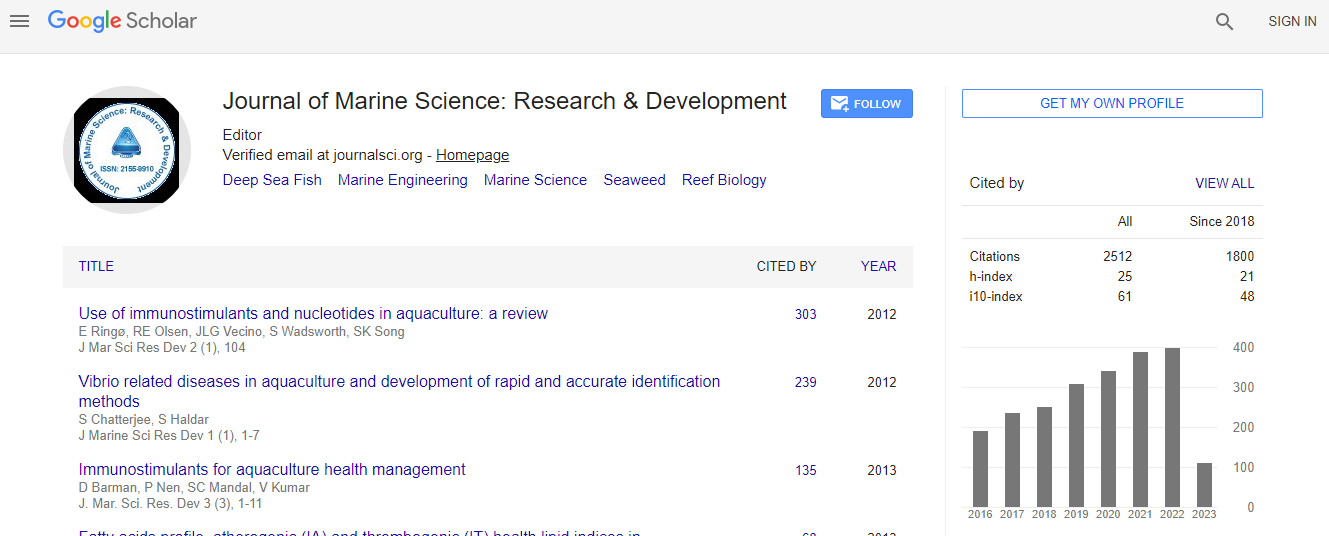Research Article
Socio Economic Status of Fisher Folks Engaged in Mussel Fishery at Kanyakumari District of Tamil Nadu, India
M. Dalin Mary1, Saritha Kailasam2*, M. Jansi3 and Jamila Patterson21St. Jude’s College, Thoothoor, Tamil Nadu, India
2Suganthi Devadason Marine Research Institute, Tuticorin, Tamil Nadu, India
3St. Hindu College, Nagercoil, Tamil Nadu, India
- *Corresponding Author:
- Saritha Kailasam
Suganthi Devadason Marine Research Institute
Tuticorin, Tamil Nadu, India
Tel: 914612336488
Fax: +914612325692;
E-mail: saritha23kailasam@gmail.com
Received date: July 22, 2015; Accepted date: August 07, 2015; Published date: August 13, 2015
Citation: Mary MD, Kailasam S, Jansi M, Patterson J (2015) Socio Economic Status of Fisher Folks Engaged in Mussel Fishery at Kanyakumari District of Tamil Nadu, India. J Marine Sci Res Dev 5:165. doi:10.4172/2155-9910.1000165
Copyright: © 2015 Mary MD, et al. This is an open-access article distributed under the terms of the Creative Commons Attribution License, which permits unrestricted use, distribution, and reproduction in any medium, provided the original author and source are credited.
Abstract
This paper attempts to explore the extent of improvement due to mussel fishing in the ten sites of Kanyakumari district. As per our study the data on the percentage of fishermen involved in mussel fishery and their marital status, age status, income status, educational status, family status and housing pattern were collected through personal interview. Data regarding marital status show that 80.7% were married, 16.7% unmarried and 2.6% widower among fishermen involved in mussel fishery in Kanyakumari district. In case of age group, the fishermen involved in mussel fishery in Kanyakumari district revealed that 46% of them were in the age group of 40-50 followed by 50-60(24%) and 30-40(18%).The income status of the sample respondent varied and 55% of them earned Rs 5,000-15,000. Only 24% of them earn Rs 15,000-25,000 while other remains in other categories. In Kanyakumari district most of the fishermen (68.7%) involved in mussel fishery are illiterate and 26.6% are educated to primary level. Most of the fishermen involved in mussel fishery in Kanyakumari district have 2-6 members in their family (92.8%). When compared with four types of houses used by the fisher folks most of them (70%) were in semi pucca colony house. Based on our results it shows that the literacy level and awareness about education was very low around the fisherman. So it may b e suggested that more attention should be given to enhance the literacy level of the coastal population.

 Spanish
Spanish  Chinese
Chinese  Russian
Russian  German
German  French
French  Japanese
Japanese  Portuguese
Portuguese  Hindi
Hindi 